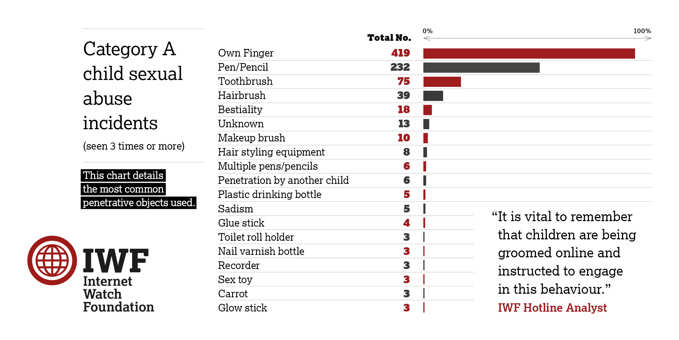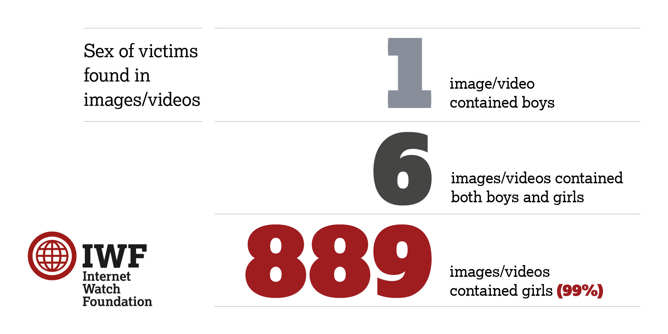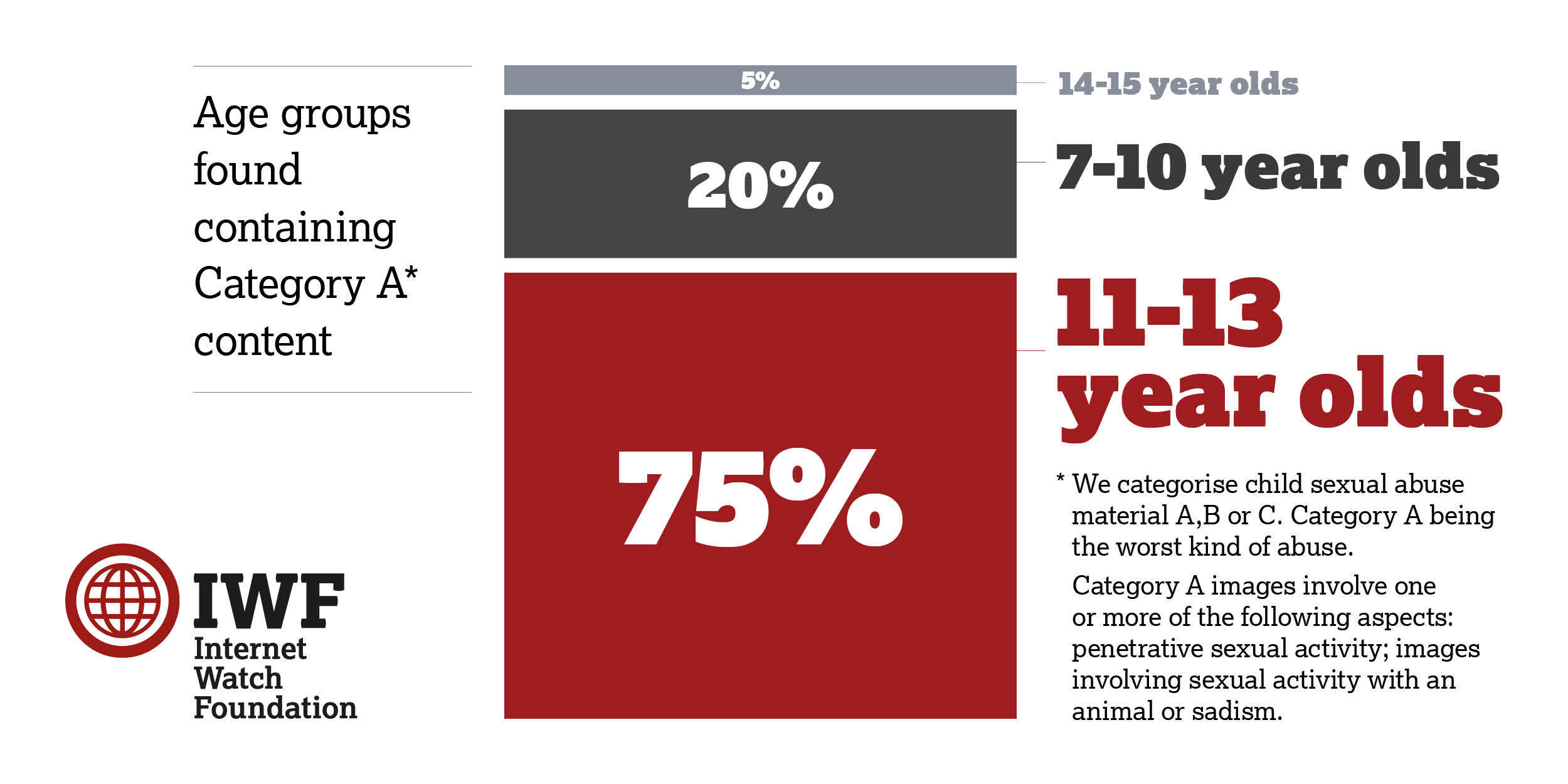“This is happening in homes in the UK and around the world. Abusers will stop at nothing and use everything and anything at their disposal to target, groom and exploit children online for their sexual purposes.
“While IWF analysts were able to ensure these awful images were blocked or taken down, we know that many thousands of images and videos of children being abused continue to be available online.
“It's vital that the UK Government's Online Safety Bill is returned to Parliament as soon as possible, so that more is done to tackle this issue. We need to see important steps taken towards making the UK a safer place for children to go online.
“Further government delays threaten both the Bill’s future and the opportunities to help protect children from being exploited by predators on the internet.”

More than 97% of the content showed penetration, often when a child was instructed to insert an object, sometimes more than one type, into their vagina or anus.
The most common type of object used was the child’s own finger (419 instances), followed by a pen or pencil (232), a toothbrush (75), and a hairbrush (39).

Children aged 11 to 13 years old accounted for most of the images recorded (75%); while 20% was of 7- to 10-year-olds; and 5% were of children aged 14 to 15 years old.
In one instance, in the 7- to 10-year-old age group, a child was told to perform oral sex on another child; in another, a child was instructed to clip pegs on to their own genitals; and in a third instance a child was seen penetrating another child with a make-up brush.

This type of child sexual abuse, where a child is groomed and coerced over the internet, is by far the fastest growing type of sexual abuse material seen by the IWF. Almost three quarters (72%) of the webpages actioned last year (252,194) contained this sort of imagery – a 28 percentage point increase on 2020 when 44% of actioned reports were of abuse imagery created via the internet. Creation of the content is orchestrated by criminals watching online via webcams, smartphones or other devices.
Child victims are groomed and coerced into performing the sexual activities in their own homes and the images and videos are then shared and distributed many times over by offenders profiting from the victim’s trauma and abuse. No blame should be placed on the child.
The snapshot case study by the IWF was sparked by analysts viewing a “self-generated” video earlier this year of a young girl who had been coerced via the internet into penetrating herself with her finger before being instructed to rub her genitals with the handle of a sharp kitchen knife.
In the video, the child who is around 7 to 10 years old, is seen dancing on her bed with her dress pulled up and no underwear on. It’s clear that she has a conversation with somebody on the other end of the camera but just the girl’s voice can be heard. She repeats back what she is being told and it’s clear the abuser flatters her and asks her if she has considered being a model.
The child, who has long wavy hair which is tied up in bunches, displays her doll to the viewer. She nods to acknowledge what is being said on the screen and penetrates herself with her own finger. Then the girl is then instructed to rub her genitals with the handle of the knife.
An IWF analyst said: “We see the worst of what adults force children to do and it really shocked us when we saw that this little girl was instructed to use a large kitchen knife. This video is what led us to start the study and keep a log of what objects children were being asked to use.”
Among the Category A images and videos identified, 889 contained girls, six contained both boys and girls and one contained boys only.
In addition to the household objects seen, 18 images accounted for bestiality, when what appeared to be a family pet was encouraged to lick a child’s genitals.
Victoria Green, Chief Executive of The Marie Collins Foundation, said: “To quote Marie Collins herself – ‘it has got to be brought home to people that each image is of a child being abused, a flesh and blood child’.
“It is all too easy to minimise the serious impact of ‘self-generated images’, seeing the children as making free choices, forgetting that at the other end of the webcam or camera is the person who is really in control and choosing to deliberately harm a child.
“These findings by the IWF are at the very least, shocking, and certainly brings it home to us in a way we cannot afford to ignore. They leave us in no doubt about what is being done to our children in their own homes by those who are skilled manipulators.
“The work of the IWF in blocking these images is an important element that assists children in their recovery journey. We join others in the need the call for the government to enact the Online Safety Bill without delay to help us in this battle to protect our children.”
A note about terminology used in this press release:
In her final report in the Independent Inquiry into Child Sexual Abuse (IICSA), Professor Alexis Jay OBE, the inquiry’s chair, calls for plain and clear language to be used when talking about child sexual abuse. She said in her opening statement to the final report:
“We also need to use the correct words to describe the actions of abusers – masturbation, anal and oral rape, penetration by objects – these words are still not considered acceptable terms by many in public and private discourse. Every incident of abuse is a crime and should not be minimised or dismissed as anything less, or downplayed because descriptions of the abuse might cause offence.”
She is right. And it is thanks to her remarks that IWF has decided to make this data publicly available, and to describe what we’re seeing as accurately as we can.
If we cannot be brave enough to use the right words to describe the true horror of what children are coerced to do, how can we expect children to be brave enough to find a way to talk to trusted adults about what is happening to them online.


